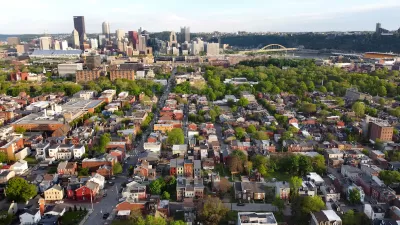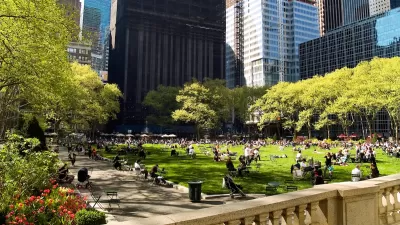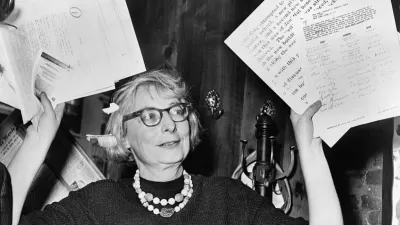Of all the sub-topics in urban planning and design, the ones likely to generate the most anxiety are those where land use planning intersects with economic development. Ben Brown ruminates.
"Let’s stop thinking of community livability and equitable opportunities as conditioned on cobbling together a 21st century-style economy that was already on its way out in the latter part of the 20th century. And let’s stop giving old-school business groups and economic developers veto power over urban planning strategies likely to provide way more resilient environments for an era in which economic uncertainty is anything but uncertain.
"Fortunately what Smart Growth and New Urbanist planners and designers already know — and what new era entrepreneurial types like those reworking the physical environment of the RTP are putting into practice — goes a long way toward making better places to tolerate failed enterprises.
"The push in most communities is to use some combination of subsidies, incentives and regulatory bullying to muscle businesses into picking up most of the tab for closing community livability gaps. Why not attack problems more directly by using available tools of government — particularly land use and transportation planning — to make it easier for citizens to survive low-wage economies and, not incidentally, to better position them to be around to help invent whatever comes next?
"Planning that delivers the broadest possible choices and scales of places to live, do business and get around without relying exclusively on private automobiles is the kind of planning that stretches family budgets. We know that. But it’s only part of the story. The best research and the most successful entrepreneurs in this new era suggest that despite the propensity for serial failure baked into the start-up culture, environments that allow for continuous, casual connectivity between people and ideas are precisely the ones most likely to nurture firms that survive and thrive and employ lots of people."
FULL STORY: Making Better Places to Fail: Take those jobs and . . (Part II)

Maui's Vacation Rental Debate Turns Ugly
Verbal attacks, misinformation campaigns and fistfights plague a high-stakes debate to convert thousands of vacation rentals into long-term housing.

Planetizen Federal Action Tracker
A weekly monitor of how Trump’s orders and actions are impacting planners and planning in America.

In Urban Planning, AI Prompting Could be the New Design Thinking
Creativity has long been key to great urban design. What if we see AI as our new creative partner?

Florida Seniors Face Rising Homelessness Risk
High housing costs are pushing more seniors, many of them on a fixed income, into homelessness.

Massachusetts Budget Helps Close MBTA Budget Gap
The budget signed by Gov. Maura Healey includes $470 million in MBTA funding for the next fiscal year.

Milwaukee Launches Vision Zero Plan
Seven years after the city signed its Complete Streets Policy, the city is doubling down on its efforts to eliminate traffic deaths.
Urban Design for Planners 1: Software Tools
This six-course series explores essential urban design concepts using open source software and equips planners with the tools they need to participate fully in the urban design process.
Planning for Universal Design
Learn the tools for implementing Universal Design in planning regulations.
Gallatin County Department of Planning & Community Development
Heyer Gruel & Associates PA
JM Goldson LLC
City of Camden Redevelopment Agency
City of Astoria
Transportation Research & Education Center (TREC) at Portland State University
Jefferson Parish Government
Camden Redevelopment Agency
City of Claremont





























